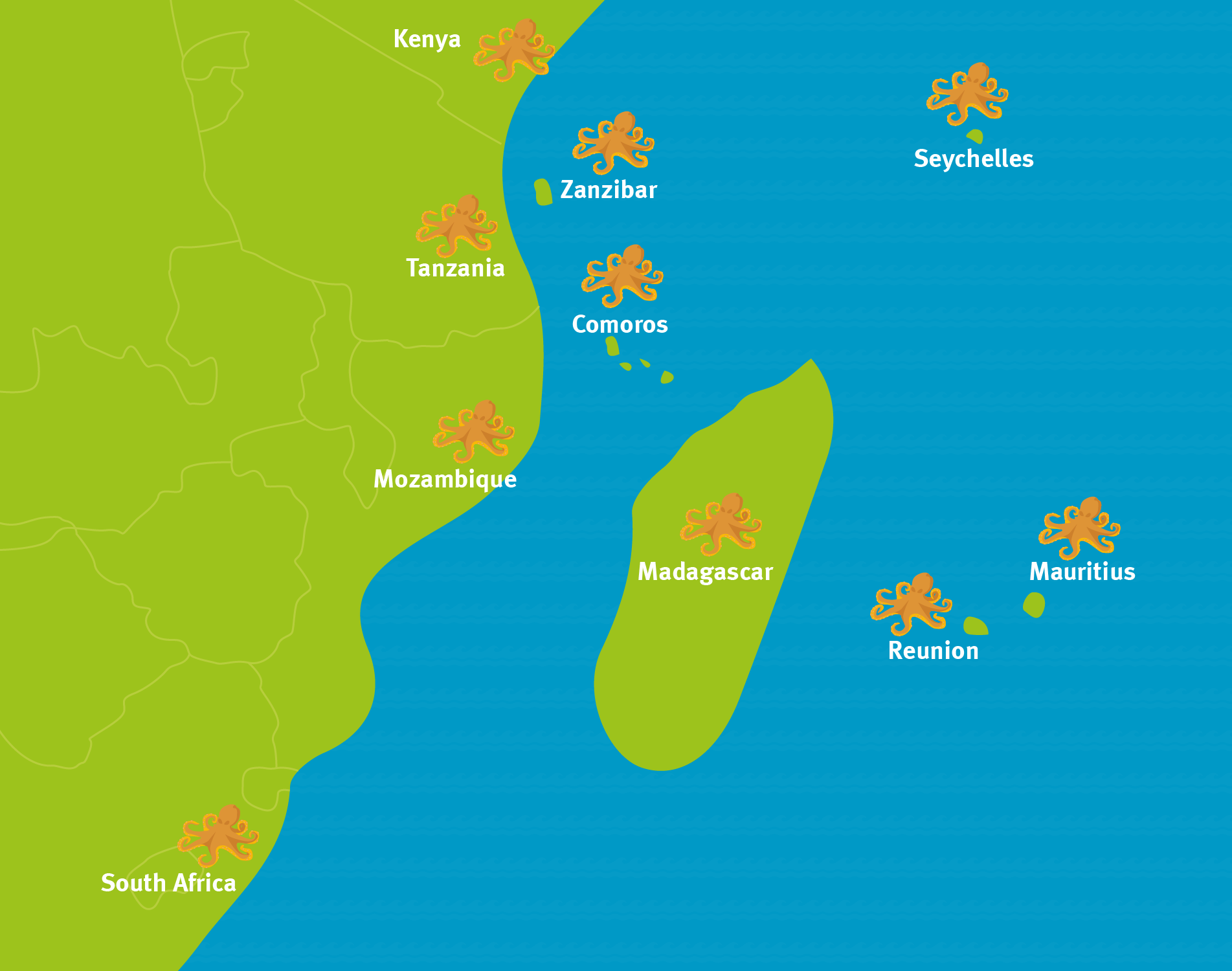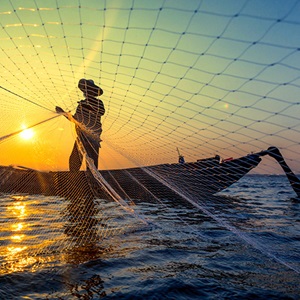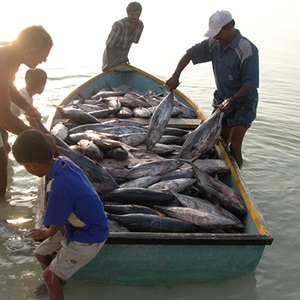The Southwest Indian Ocean Octopus Project (SWIOCeph) guides stakeholders and octopus fishing communities in the southwest Indian Ocean region towards more sustainable fishing practices.
Why this project?
Octopus is traditionally caught by communities throughout the Indian Ocean and is a valuable source of protein and income. Increased global interest in octopus product has also created export market opportunities, with Kenya, Tanzania and Madagascar as the largest octopus exporters in the region. Fishing sustainably will help these octopus fishing communities gain access to long-term social, environmental and economic benefits.SWIOCeph uses the MSC framework and tools to engage and support stakeholders and octopus fishing communities in working towards more sustainable fishing practices. Additionally, the project provides a platform for stakeholder engagement and collaboration.
Southwest Indian Ocean Octopus Project | Marine Stewardship Council
Where is it taking place?
SWIOCeph works with octopus fishing communities in Kenya, Tanzania, Zanzibar, Comoros, Seychelles, Madagascar, Mozambique, Mauritius and South Africa.

How does it work?
SWIOCeph follows a four-stage process.
- Information on fishing practices, stock status, landings and trade are used to map the octopus fisheries in the south-west Indian Ocean region.
- Selected fisheries are pre-assessed by independent assessors against the MSC’s Fisheries Standard and areas of improvement identified.
- Stakeholders use the pre-assessments to develop action plans by collaboratively identifying ways to improve fishery practices toward sustainability.
- The action plans are then implemented by stakeholders through fishery improvement projects (FIPs).
Progress to date includes the production of a mapping report; five country-level pre-assessments and one regional pre-assessment; and the independent development and implementation of an action plan by stakeholders in southwest Madagascar.
Who is involved?
SWIOCeph was initiated by the MSC with conservation group Blue Ventures, the German Corporation for International Cooperation (GiZ) (Deutsche Gesellschaft für Internationale Zusammenarbeit), the African Union Interafrican Bureau for Animal Resources (AU-IBAR) and WWF-Sweden.
The MSC and AU-IBAR provided funding to initiate the project and enable ongoing capacity building training. Funding for Stage 1 and Stage 2 of the project has been provided by GiZ. WWF-Sweden provided funding for ongoing stakeholder engagement and collaboration work.
Creating a platform for knowledge sharing
The MSC is creating a platform to enable stakeholders in the southwest Indian Ocean to share knowledge and encourage sustainable octopus fishing.
In October 2020, the MSC facilitated a three-day virtual event to discuss the challenges and opportunities for sustainable octopus fisheries in the region. The event was attended by 88 participants from 18 countries and featured webinars on octopus stock assessment, fishery improvement efforts, and the global market for octopus.
Follow the link below for the full line up of talks, highlights and insights from the SWIOCeph virtual event.
Joining forces for a sustainable future | SWIOCeph Virtual Symposium 2020
A virtual symposium bringing together experts from the MSC and guest speakers from the eNGO, research and commercial worlds.
Find out more
Find out more about the SWIOCeph project by downloading our brochure.| Date of issue: | 30 September 2020 |
|---|
| Date of issue: | 30 September 2020 |
|---|
| Date of issue: | 12 October 2020 |
|---|



-500.tmb-thumb300.jpg?Status=Master&Culture=en&sfvrsn=651ac8e5_1)

